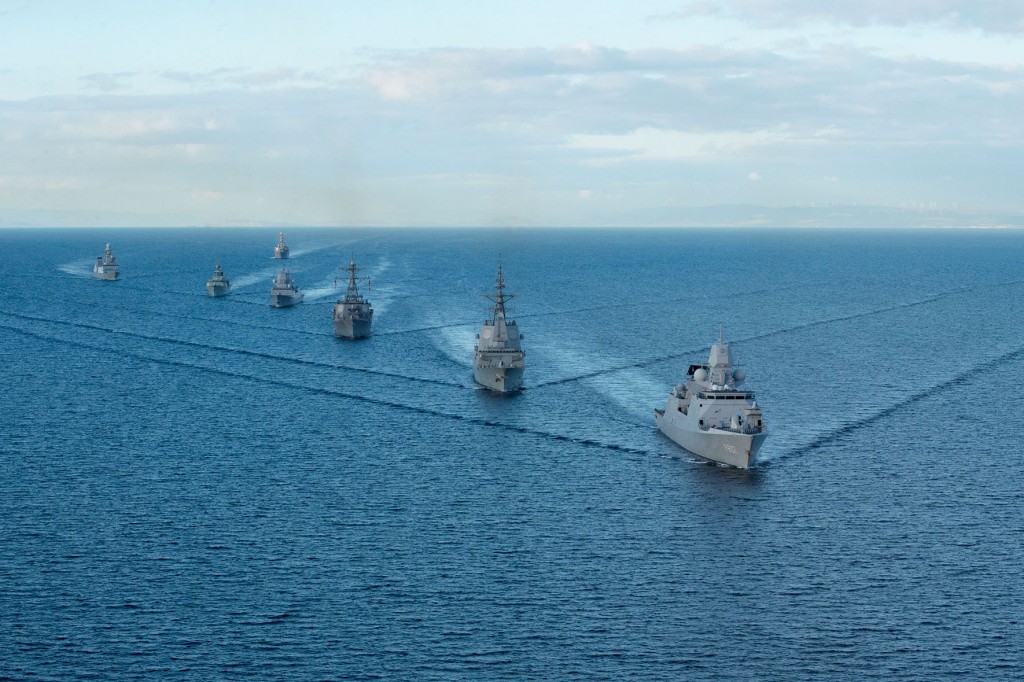Thales’s sensor suite, HNLMS De Zeven Provinciën succeeded to track a hostile outer-atmosphere ballistic missile
Thales’s sensor suite, HNLMS De Zeven Provinciën succeeded to track a hostile outer-atmosphere ballistic missile travelling at 7000 km/h and simultaneously protect a naval force against anti-ship missiles. This is a world-wide first, realized during the At Sea Demonstration held in October off the coast of Scotland.
The leading role in the ASD was for HNLMS De Zeven Provinciën. This ship was equipped with a prototype version of Thales’s ultramodern SMART-L Extended Long Range radar that will be installed on the Royal Netherlands Navy’s Air Defence and Command frigates (LCF). This modified SMART-L enables the detection of targets up to 1500 kilometers.
SMART-L EWC successfully tracked the Terrier-Orion ballistic missile launched from the Scottish island Benbecula well into space. The tracking information was sent through the NATO network to USS Ross. This ship intercepted the ballistic missile with a Standard Missile 3 (SM-3), another first in European waters.
During the At Sea Demonstration, the LCF maintained its air defence capability. It protected the 10 ships in the squadron, at about 10 km from each other, against incoming anti-ship missiles using its SM-2 and Evolved Sea Sparrow Missiles using its Thales APAR multifunction radar in addition to the SMART-L ELR..
During the ASD eight countries tested the NATO Integrated Air and Missile Defense capability. In other words: the capability to collectively defend an area against ballistic missiles and other air threats which fits in a wider NATO plan for the improved protection against ballistic missiles.
Squadron commander Frank Sijtsma refers to ASD 2015 as ‘a great success’. “We have prepared for years for this event and, thanks to excellent cooperation with our NATO and industrial partners, De Zeven Provinciën has perfectly executed its task.”
The Dutch frigate was not the only ship to be successful: the other ships in the naval force performed admirably as well. In addition to the SM-3 firing by USS Ross, the Spanish SPS Almirante Juan de Borbón, the Canadian HMCS Montréal and the Italian ITS Andrea Doria launch various missiles.

